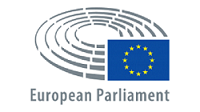Medicine shortages in the EU: causes and solutions

The Covid-19 health crisis has highlighted a growing problem: shortages of medicines and medical equipment that put patients at risk and national health systems under pressure.
In April 2020, the European University Hospital Alliance warned that rising demand in intensive care units for certain anaesthetics, antibiotics, muscle relaxants and medicines used in a way they were not originally approved for to treat Covid-19 could mean stocks run out.
Decreased production, logistical problems, export bans and stockpiling due to the health crisis further increased the risk of bottlenecks.
On 14 July, Parliament’s environment and public health committee adopted a report calling for European health “independence” by securing supplies, restoring local drug manufacturing and ensuring better EU coordination of national health strategies.
What causes medicine shortages?
Between 2000 and 2018, shortages in the EU increased 20-fold and according to a note by the European Commission are rising for widely used essential products.
The reasons are complex, ranging from manufacturing problems, industry quotas, legal parallel trade and unexpected peaks in demand following epidemics or natural disasters to pricing, which is decided at national level. The EU is increasingly dependent on non-EU countries - mainly India and China - when it comes to the production of active pharmaceutical ingredients, chemical raw materials and medicines.
Read more here.







